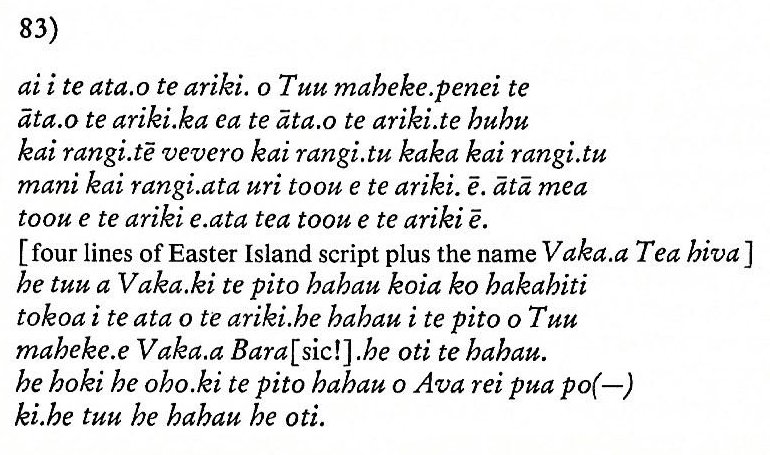
|
E:80 |
| koia ko
hakamanamana mai i te hakanononga |
He
worked mana in the fishing grounds. |
|
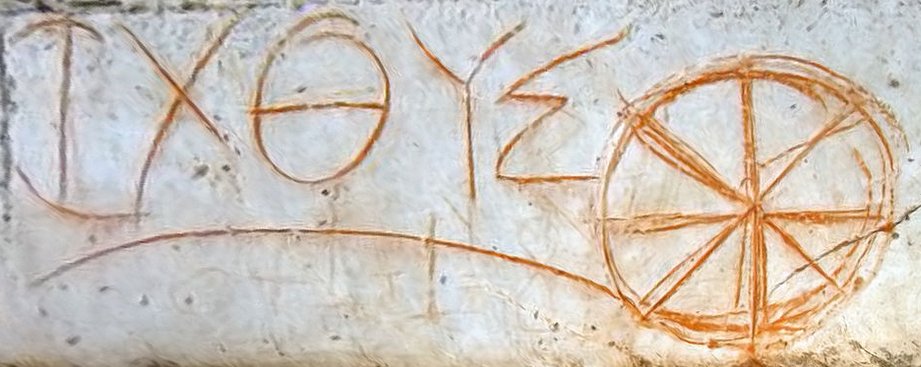 |
| (three [empty?]
lines crossed out) |
[Similar to the 3 days between Polaris (*26)
and Hamal (*30).] |
|
... For three days all
household fires remained extinct as a
preparation for the solemn renewal of the
fire, which took place on the fifth or sixth
day after the winter solstice ...
... Väinämöinen set about
building a boat, but when it came to the
prow and the stern, he found he needed three
words in his rune that he did not know,
however he sought for them ... |
| i tuu mai
era te miro.o Hotu.ki
taharoa.he topa te haa(-) |
When Hotu's canoe had reached Taharoa, the
vaginal fluid (of Hotu's pregnant wife)
appeared.
They sailed toward Hanga Hoonu, where the
mucus (kovare seems to refer to the
amniotic sac in this case) appeared
They sailed on and came to Rangi Meamea,
where the amniotic fluid ran out and the
contractions began. |
|
haa roroa.he
oho.mai ki hanga hoonu.he |
|
topa te
kovare.he oho.mai he tuu ki
rangi |
|
meamea.he
pakakina te ranu.he au te tua |
|
toto.o te poki.he
hoa te aka i mua i te hanga. |
|
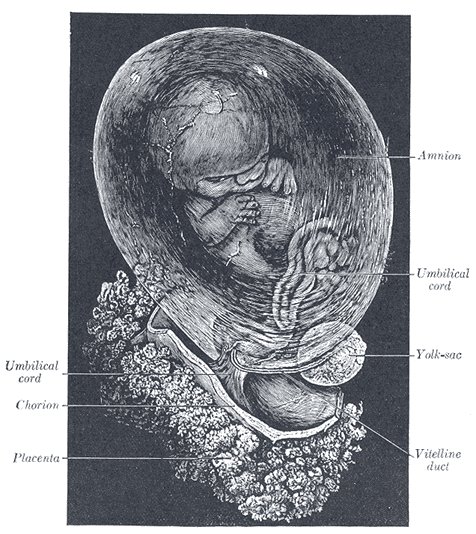
Hoa. 1. Master, owner;
tagata hoa papaku, owner or relative of
a dead; hoa manu, 'bird master', that
is, he who received the first egg at the
annual festivals in Orongo; he
to'o mai e te hoa manu i te mamari ki toona
rima, he ma'u, he hoko, the 'bird
master' receives the egg in his hand and
carries it, dancing. 2.Friend,
companion: e ga hoa ê! 3. To
cast away, to throw away, to
abandon, perhaps also to expel. 4. To
confess a sin; he hoa i te ta'u: term
used of a category of rongorongo
boards (see ta'u). Vanaga. 1.
Friend; repa hoa, friend (male),
comrade, companion, fellow; to confide;
repa hoa titika, faithful friend;
garu hoa, friend (either sex); uha
hoa, friend (female); hoa kona,
native T. 2. To abandon, to debark, to cast,
to launch, to anchor, to let go, to give up,
to reject, to repudiate, to suppress, to cut
off, to jerk out, to proscribe, to reprove;
hoahoa, to upset, to destroy.
Churchill.
Aka. 1. Anchor: he-hoa te aka,
to drop anchor. 2. Root of certain
plants (banana tree, taro, sugar-cane). 3.
To be paralyzed by surprise. Vanaga. 1.
Root; aka totoro, to take root. P
Pau., Mq.: aka, root. Ta.: aa,
id. 2. (āka)
anchor. 3. Causative (haka).
Churchill. |
|
i
hanga rau.he
tuu tokoa atu te miro.o |
They anchored [he hoa te aka] the
canoe in front of the bay, in Hanga Rau. |
|
Ava rei pua.he
hoa tokoa i te aka. |
The
canoe of Ava Rei Pua also arrived and
anchored [he hoa tokoa i te aka]. |
|
i hoa era te
aka.o te miro o hotu.he topa te |
After Hotu's canoe had anchored [i hoa
era te aka.o te miro o Hotu], the child
of Vakai and Hotu appeared [he topa te
poki.ki haho]. It was Tuu Maheke, son of
Hotu, a boy [tamaaroa]. |
|
poki.ki haho.a
Vakai.a Hotu.ko Tuu |
|
maheke.e a
Hotu.tamaaroa. |
|
Topa.
1. To bend down, to drop to the ground;
to fall on a certain date. 2. To stop doing
something, to drop; ina ekó topa taau
aga, do not stop, keep doing your work.
3. To remain, to be left over, to be
unfinished; he topa te kai, the food
is not finished, there is some left. 4. To
come to one's memory; i te aamu he topa
te vânaga tûai, in the legends old words
come to memory. 5. To remember, to reflect
(with mana'u as subject); e-topa
rivariva tokorua mana'u ki te me'e nei,
let the two of you think carefully about
this thing. Vanaga. 1. Wine; topa tahaga,
id. 2. To fall in drops, to descend, to go
down, to abdicate; topa iho, to fall;
hakatopa, to knock down, to cause to
fall; hakatopa ki raro, to knock
down, to subjugate. 3. Childbirth, abortion;
topa te poki, to lie in. 4. A feast,
to feast. 5. To arrive, to result; topa
rae, newcome; topa iho, to come
unexpectedly; topa ke, to deviate;
topa no mai, topa hakanaa,
topa tahaga, mau topa pu,
unexpected; topa okotahi, solitary;
hakatotopa, to excite, to foment. 6.
Bad, low, cheap, failure; igoa topa,
nickname; ariga topa, sinister, sly,
ill-tempered, to hang the head; hakatopa,
to disparage; hakatotopa, irresolute.
7. (Of upward movement) topa ki raro,
to scale, to surpass; hakatopa ki te ao,
to confer a dignity; hakatopa ki te kahu,
to spread a sail; hakatotopa, to make
a genealogy. Churchill.
Haho. Outside. Vanaga. Hahoa
(ha causative, hoa) to cut, to
wound, to hurt. PS Mgv.: tahoa, to
make papyrus by beating. Sa.: foa, to
chip, to break. To.: foa, to crack,
to make an opening. Fu.: foa, to dig,
the rent in a mat. Underlying the Nuclear
Polynesian significations the primal sense
seems to be that of a hole. The Rapanui,
a causative, is a clear derivative in the
cutting sense; wound and hurt are secondary
withing this language. The Mangarevan
composite means 'to beat until holes
appear', which is a distinctive character of
the beaten bast of the paper mulberry in the
condition in which it is ready for
employment in making tapa. Churchill. |
|
E:81 → June
10 |
| i tuu tokoa
atu era.te miro o Ava rei pua.i hoa |
After the canoe of Ava Rei Pua had also
arrived and anchored, the child of Ava Rei
Pua was born [he topa te poki a Ava rei
pua.].
It was a girl named Ava Rei Pua Poki. |
|
tokoa era.i
te aka.he topa te poki a Ava rei pua. |
|
tamahahine.ko Ava rei pua.poki. |
| he ui mai a
Honga.ki te tangata o runga i te miro |
Honga asked [he ui mai a Honga] the
people on board the canoe of Ava Rei Pua,
'What kind of child was born?' [tama
āha.i topa ai.]
They replied [he hakahoki mai], 'A
girl was born'. [penei e.tamahahine.i
topa ai.] |
| o Ava rei
pua tama āha.i topa ai.he haka(-) |
| hoki mai
penei e.tamahahine.i topa ai.he |
| hakahoki mai
a Honga.i te kī.penei e.he ōhu. |
This is how Honga replied to the news [he
hakahoki mai
a Honga.i te kī.penei e.] - he
shouted in a loud voice [he
ōhu mai a Honga.],
'Let the queen land in the left side [a
te rara maúi] in the direction of Te
Tahua! Leave the bay to the royal son [ka
hakarere te hanga mo te riki tamaaroa],
to Tuu Maheke!' |
| mai a
Honga.ariki tamahahine.mo tomo a te |
| rara maui.i
runga i te tahua.ka hakarere te |
| hanga mo te
riki tamaaroa mo Tuu maheke. |
| he oho.te
vaka ki uta.he eke te ariki a Hotu.a |
The canoe sailed toward the beach [he
oho.te vaka ki uta.] and King
Hotu, Vakai, and Tuu Maheke went on land [he
eke].
The assistant of the king [ko titiro o
te ariki] acted as midwife (?) for the
pregnant woman (hanau tama is, in
this case, more likely to mean mother of the
child). |
| vakai.a Tuu
maheke.koia ko titiro o te ariki. |
| koia ko
hakaāu. o te
hanau tama. |
|
A'u 1. Birthing pains; matu'a a'u,
biological mother (not adoptive);
vi'e hakaa'u, midwife. 2. Vessel, cup
(Tahitian word). Vanaga. |
| he tomo ki
uta.te vaka.o te ariki.tamaaroa |
The canoe of the royal boy landed, and the
assistant who acted as a midwife (?) took
care of Queen Vakai.
The child came down [he
hakatopa] into the freshwater |
| he too mai
te hakaau.i te ariki.tamahahi(-) |
| ne.i a
Vakai.he hakatopa ki
roto i te vai |
|
...
There is a couple
residing in one place named Kui and
Fakataka. After the couple stay
together for a while Fakataka is
pregnant. So they go away because they wish
to go to another place - they go. The canoe
goes and goes, the wind roars, the sea
churns, the canoe sinks. Kui expires
while Fakataka swims.
Fakataka
swims and swims, reaching another land. She
goes there and stays on the upraised reef in
the freshwater pools on the reef, and there
delivers her child, a boy child. She gives
him the name Taetagaloa. When the
baby is born a golden plover flies over and
alights upon the reef. (Kua fanau
lā te pepe kae lele mai te tuli oi tū mai i
te papa). And so the
woman thus names various parts of the child
beginning with the name 'the plover' (tuli):
neck (tuliulu), elbow (tulilima),
knee (tulivae).
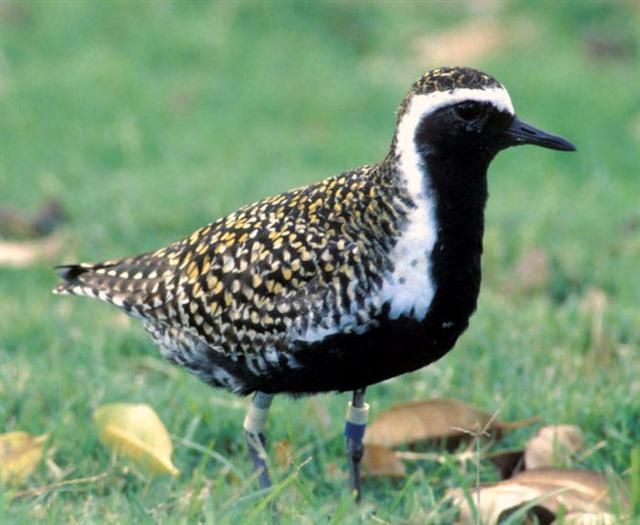 |
|
E:82 → 2 * 41 |
| he hakauru
ki roto ki te taheta.he
ngatu i te |
and was laid into a basin (taheta).
The assistant
who acted as a midwife (?) pressed out (of
the body) the mucus (kovare, in this
case amniotic membrances) [he ngatu i te
kovare] and the coagulated blood (hatu
kai), until the coagulated blood
(i.e., the afterbirth) was all pressed out [ki
haho.he pae tahi te hatu kai]. |
|
kovare.i te
hatu kai.ki
haho.he pae tahi te |
| hatu kai.ki
haho.he mau iri (h)e oho.i te |
|
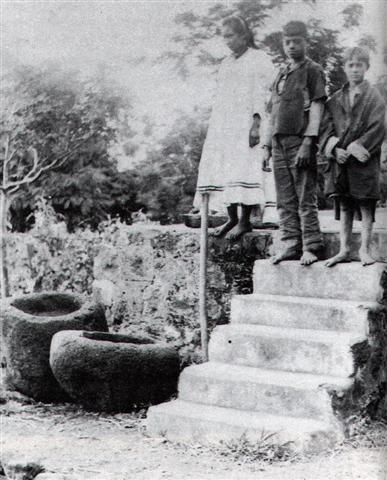
Gatu. Gaatu, totora reed. Gatu:
1. To press, to tighten, to squeeze. 2. To
pack tight. 3. To pull suddenly, to give a
jerk. I ka hakarogo atu, ku eke á te
kahi, he gatu mai, as soon as he felt
the tuna be, he pulled in [the line] with a
sharp jerk. 4. To kick. 5. E gatu te
hagu, to wait for something impatiently
(gatu, breath). 6. Shortly, very
soon. He tu'u gatu, he is coming
shortly, he is just about to arrive. Vanaga.
Bulrush, reed. Gaatu (gatu) 1.
To feel of, to pinch, to throttle with the
hands, to touch, to press (gaatu);
gatuga, pressure; gatugatu, to
trample down. T Mgv.: natu, to press
out linen, to squeeze a person or a sore
place. Mq.: natu, to pinch. Ta.:
natu, to pinch, to bruise. 2. To
suppurate. 3. Gatu mai gatu atu,
sodomy. Gatua (gatu 1),
tractable, to press. Churchill. Scirpus
riparius var. paschalis. Barthel
2.
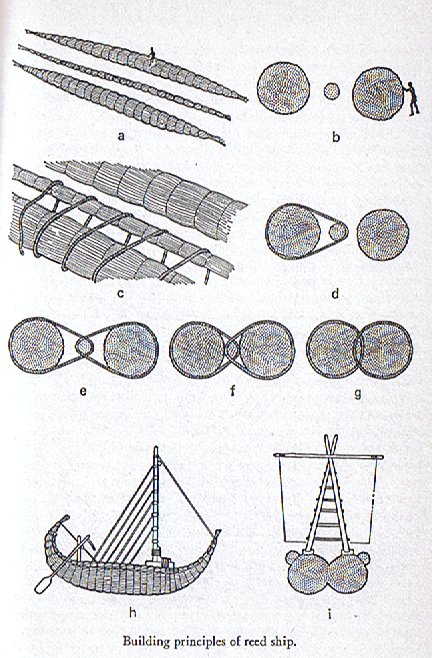
Kovare. Mucous plug; he-poreko
te kovare, the mucous plug comes out
(before the birth). Vanaga.
Hatu. 1. Clod of earth; cultivated
land; arable land (oone hatu). 2.
Compact mass of other substances: hatu
matá, piece of obsidian. 3.
Figuratively: manava hatu, said of
persons who, in adversity, stay composed and
in control of their behaviour and feelings.
4. To advise, to command. He hatu i te
vanaga rivariva ki te kio o poki ki ruga ki
te opata, they gave the refugees the
good advice not to climb the precipice;
he hatu i te vanaga rakerake, to give
bad advice. 5. To collude, to unite for a
purpose, to concur. Mo hatu o te tia o te
nua, to agree on the price of a nua
cape. 6. Result, favourable outcome of an
enterprise. He ká i te umu mo te hatu o
te aga, to light the earth oven for the
successful outcome of an enterprise. Vanaga.
1. Haatu, hahatu, mahatu.
To fold, to double, to plait, to braid;
noho hatu, to sit crosslegged; hoe
hatu, clasp knife; hatuhatu, to
deform. 2. To recommend. Churchill. In the
Polynesian dialects proper, we find Patu
and Patu-patu, 'stone', in New
Zealand; Fatu in Tahiti and Marquesas
signifying 'Lord', 'Master', also 'Stone';
Haku in the Hawaiian means 'Lord',
'Master', while with the intensitive prefix
Po it becomes Pohaku, 'a
stone'. Fornander. |
| ariki
tamahahine. i te ariki.poki tokoa. |
They picked up
the queen and the royal child [he mau iri
(h)e oho.i te ariki tamahahine. i te
ariki.poki tokoa] and climbed up and
moved on. They reached [he tuu ki]
Oromanga (corrected for 'Oro Ngatu') and
left the royal personages there [he
hakarere i te ariki]. |
| he tuu ki
ōro.
(crossed out: ma)
ngatu he
hakarere i te ariki. |
ōro.
ma ngatu could be read as
O-oro(ma)nga-tu, i.e.Oo-ronga-tu.
... Then Hotu
cut the bindings of those two canoes. His
ship went along the south and his relation
Tu'u ko iho went to the north, they
both went round
the land. When the king's ship came again
and passed the headland Vai mahaki,
Hotu matua saw the navigator's ship
at Veronga. Tu'u ko iho was
going to land at Anakena, to be the
first chief to stand on this land ...
(Barthel 2)
Tu.
To crush into puree, like women of old did,
crushing sweet potatoes and mixing them with
cooked egg to give the children. Vanaga. To
mix, to confound. Churchill. |
| he too.mai
te tangata i toraua raakau.ki u(-) |
The men took [he
too.mai te tangata] their
provisions on land [ki
uta],
all their food supplies [te
kai], down to the smallest items
(? ka-paepae-tahi-ro-mai) and also
the prisoners. |
| ta.i te
kai.anakeanake.aā ka paepae ta(-) |
| hi ro mai ki
uta.te tangata.kōpu. tokoa. |
| he tomo
tokoa te vaka.o te ariki tamaha(-) |
The canoe of the queen also landed [he
tomo tokoa]. It landed on the
left side in the direction of Te Tahua and
remained there and stayed.
The place where
the coagulated blood (i.e., the afterbirth)
of Vakai had been pressed out was called
'Hiro [sic!] Moko'. |
| hine. a te
rara maui.a runga i te tahua. |
| ki noho.ki
hinihini i nape
ai i te ingoa.o te |
| kona.ngatu
era i te hatu kai.o Vakai.ko
hira(-) |
|
moko.te ingoa. |
|
Keke. To go down after reached its
zenith (of the sun): he-keke te raá.
Kekeé, to be lying on the ground, partly
above it, to stick out: ma'ea ke'e ke'e,
stones sticking out of the ground.
Kékekéke, to rustle, to creak:
ku-kekekeke-áte hare i te to kerau, the
house creaked in the wind. Kekepu,
animal mentioned in ancient traditions, the
flesh of which was eaten in Hiva
(also kepukepu). Kekeri, to
feel an indisposition of the stomach or the
bowels: he-kekeri te manava. Kekeú,
shoulder (according to others,
shoulder-blade); used also for 'arm'.
Vanaga. Keke (ke), other,
distinct, special; hikohiko keke,
hide-and-seek; kekee (ke),
irregular, uneven, rough; ke avai, a
superlative expression; hinihini ke avai,
ancient; ika ke avai, abuse; kori
ke avai, abuse; maori ke avai,
skilful, handy; pipiro ke avai,
disgusting odor; tupu ke avai, of
swift growth; ua ke avai, a shower of
rain. Keekee; niho keekee,
long protruding teeth. Churchill. Pau.:
keke, armpit. Mgv.: keke, id.
Ta.: ee, id. Mq.: kaáke, id.
Ma.: keke, id. Churchill. Mgv.:
keke, to praise, to felicitate. Sa.:
'e'e, to pay respect to. Ha.: ee,
caressing, kind. Kekei, sharp, harsh,
of the voice. To.: keke, to bleat.
Ha.: eeina, to creak, to grate.
Churchill.
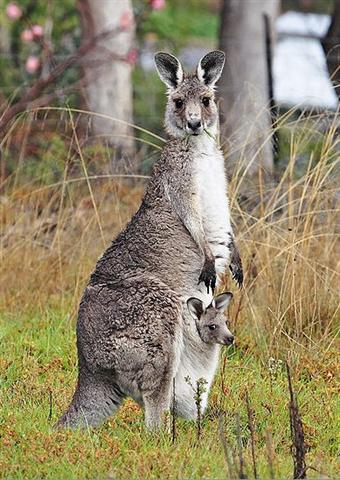
Hira. To turn the eyes away, to
leer. Hakahira; mata hakahira,
squint-eyed. P Mq.: hiri, crosseyed.
Ta.: hira, bashfulness; hihira,
to look askance. To.: hila, to look
askant. Churchill. Mgv..: hira, frank
and hardy. Ta.: hirahira, bashful
(sense-invert). Ma.: hihira, shy.
Churchill. |
| he oho.mai
te maori o te pito hahau.ko Vaka. |
Vaka, the
master in charge of tying the umbilical cord
[te maori o te pito hahau], came [he
oho mai] to tie the umbilical cord of
Tuu Maheke [ki te pito hahau.o Tuu maheke]. |
|
ki te pito hahau.o Tuu maheke.i oho(-) |
| hanga mai
ana.a Vaka.i hakahiti
i oho ro mai |
On his way (?
ohohanga), Vaka had performed a
ceremony (hakahiti) |
|
Hiti. 1. To show itself again, to
reappear (of the new moon, of a
constellation - meaning uncertain). 2. Said
of thin, tough-fleshed fish of indifferent
taste: ika hiti. 3. Said of fish when
they come to the stones of the shore for
insects among the seaweed: he hiti te ika.
4. To reproach someone for his ingratitude.
Vanaga. 1. To rise, to appear, to dawn;
hitihaga, rising; hitihaga roa,
sunrise; hitihiti, to dawn; horau
hitihiti, break of day; hakahiti ki
te eeve, to show the buttocks. 2.
Puffed; gutu hiti, thick lips.
Churchill.

|
JULY 2 (183) |
83 |
SEPT 24 (267) |
 |
 |
|
11h (167.4)
χ Leonis, χ¹ Hydrae (167.1), χ²
Hydrae (167.3)
*167.4 - *41.4 = *126.0 |
HAN = ζ Ophiuchi
(251.0)
*126 + *84 = *210 |
|
SIRIUS
Alkes
*165 =
☼161
Rangi
Meamea |
JULY 4 (☼101) |
AUG 16
(☼144) |
SEPT 22
(☼181) |
|
Zosma /
Coxa
*169 =
☼165 |
Thuban
*212 =
☼208 |
Antares
*249 =
☼245 |
|
84 |
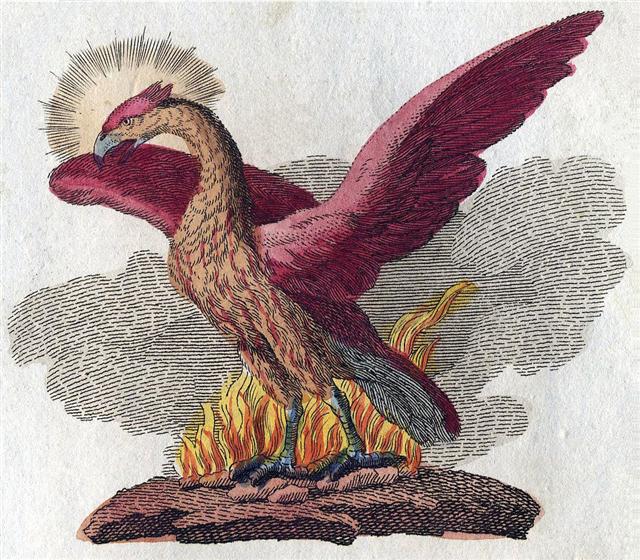
|
|
E:83 |
|
ai i te ata.o
te ariki. o Tuu maheke.penei te
āta.o te
ariki.ka ea te āta.o te ariki.te
huhu |
for
the shadow (ata) of King Tuu Maheke.
This is [penei] how the
shadow of the king [te āta.o te ariki]
is constituted: |
|
ka ea te ata [? āta]
o te ariki
te huhu kai rangi |
May
the shadow of the king arise [ka ea]!
The feathered staffs [te huhu] do not (yet) call
[kai rangi]. |
|
Ai. Aai 1. Who: interrogative pronoun used in place of
koai te mee...: Aai i-tu'u-mai-nei, e-haúru-ró-ana au? = Koai te
mee i-tu'u-mai-nei, e-haúru-ró-ana au? Who is it who came
here when I was sleeping? 2. Whose: genitive pronoun. Vanaga. 1.
(Ko ai) Who, which. 2. Then. 3. Consequence. 4. (Hai).
Churchill. Ata 1. Dawn, first light
before sunrise; ku-hamu-á te ata ,
dawn has broken; ku-tehe-á te ata,
it's already dawn (lit.: the lights have
flown). 2. Particle inserted between the
imperative prefix ka and the verb to
signify 'well, carefully, intelligently':
ka-ata-hakarivariva, prepare it well.
Between the prefix e and kahara
it expresses 'to make sure that, to take
good care that...' : e-ata-kahara koe o
oona, be careful not to get dirty;
e-ata-kahara koe o kori te moa o te tahi pa,
be sure not to steal chickens of another
property. 3. More: iti, small; ata
iti, smaller; he-ata-ata iti-iti ró,
the smallest of all. Vanaga.
Âta
1. Shadow: he-veveri te poki, ana tikea
toona âta, the child is frightened at
seeing his shadow; person's reflection (in
mirror, in water): he âta oou-á, it's
your own reflection. 2. To be frightened by
a shadow: he-âta te îka, the fish are
frightened (and they flee) by people's
shadows. Vanaga.
1. Image, picture,
portrait, design; to draw, to paint (shadow
sense). P Mgv: ata, image, likeness,
portrait, shadow of a human being, form,
shape, appearance, imprint, impression. Mq.:
ata, image, statue, portrait, shadow,
surface; to design, to mark. Ta.: ata,
shade, shadow appearance, form,
representation of an object, cloud, cloudy.
2. Transparency, end of day, sunset (bright
sense); e ata, red clouds; ku ata,
transparent; ata mea, ata tea,
ata tehe, dawn, daybreak, sunrise;
ataata, end of day, sunset. P Mgv.:
ata, morning or evening twilight,
daybreak, dawn; ata haihai, evening
twilight, a beautiful sunset; ataiai,
twilight, clouds red with the sunset;
atakurakura, a beautiful sunrise or
sunset; atareureu, dawn, the first
peep of day, morning twilight. Mq.: ata,
to appear, to rise, to shine (of stars);
ata uá, morning twilight; ataata,
diaphanous, transparent. Ta.: ata,
twilight. 3. A designation of space; ata
hakahohonu, abyss; ata hakaneke mai,
nearby, close at hand; ata tapa,
lateral, marginal. 4 ? Ata kimikimi,
to inquire; ata puo, to hill a plant;
ata ui, to examine, to taste.
Churchill. Atahenua (ata 3 -
henua 1), landscape, countryside.
Atakai: 1. Generous, hospitable,
beneficent, indulgent, liberal, obliging;
prodigality, indulgence; rima atakai,
benevolent, generous, open-handed; gift,
liberality. 2. Calm, unperturbed, grateful.
Churchill. Ata-ta T, evening (?
ataata). Atatehe (ata 2 -
tehe 1), dawn; popohaga atatehe,
morning, early in the morning. Churchill.
Although ata means dawn light the
shadows (āta)
need a source of light in order to appear.
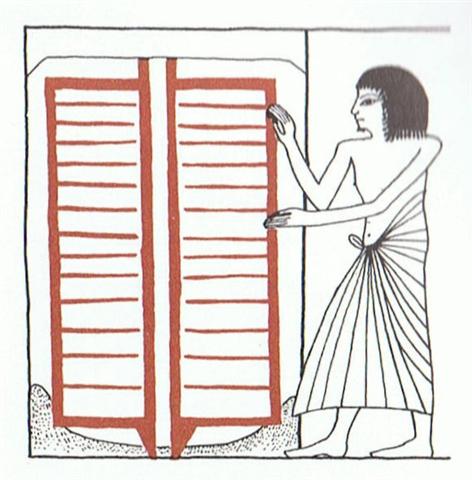
Huru. Custom,
tradition, behaviour, manners,
situation, circumstances; poki
huru hare, child who stays inside (to
keep a fair complexion); te huru o te
tagata rivariva, a fine person's
behaviour; pehé te huru o Hiva? what
is the situation on the mainland?
Huruhuru, plumage, feathers (the
short feathers, not the tail feathers),
fleece of sheep. Vanaga. Samoa: sulu,
a torch; to light by a torch; sulusulu,
to carry a torch; susulu, to shine
(used of the heavenly bodies and of fire).
Futuna: susulu, the brightness of the
moon. Tonga: huluaki, huluia,
huluhulu, to light, to enlighten;
fakahuhulu, to shine; iuhulu, a
torch or flambeau, to light with a torch.
Niuē: hulu, a torch; huhulu,
to shine (as the moon). Maori: huru,
the glow of the sun before rising, the glow
of fire. Churchill 2.
Ina. No, nothing, no-one; ina au
kaihaga I don't want to. Vanaga. 1.
Negative, no, not; ina e rakerakega,
innocent; ina ko tikea, unperceived;
ina e ko mou, incessant; ina o nei,
absent; ina kai riva, uncertain;
ina kai mou, eternal; ina kai tikea,
unperceived; ina kai kai, abstinence,
fasting; ina kai titika, incorrect;
ina kai rakei, ill prepared. 2.
Breath G. Inaga T, lung. Churchill.
Kai. 1. Ina kai; verbal
negation (but not used with the imperative);
ina kai kai matou, we have not eaten.
2. To eat; meal. 3. Fruits or produces of
the land, vegetables, edible plants. 4.
Figuratively: he-kai ite rogorogo, to
recite the inscriptions kohau rogorogo
(as spiritual food). 5. Eclipse:
ku-kai-á te raá, te mahina, the sun, the
moon has been eaten (eclipsed). Vanaga. 1.
Negative; kai rogo, to fast; kai
oho, to forego; kai maa, to be
ignorant, to doubt; vave kai kohe,
inaccessible; ina kai, see ina
1. Ta.: ai, no. 2. To undergo, to
suffer. 3. Sharp, cutting. T Mgv.: koi,
koikoi, pointed, sharp, adapted for
cutting; kokoi, prickly, stinging,
irritating. Mq.: koi, sharp, cutting.
Ta.: oi, sharp, keen. Since this is
the only language which has kai in
this sense the possibility of typographical
error should not be overlooked. The form
koi outside of Southeast Polynesia is
found in Maori, Rarotonga and Hawaii. 4. To
eat, to feed, to feast; food, meat, a meal,
repast; kai nui, provision,
intemperate, voracious; kai no iti,
sober, temperate; hue ki te kai, to
victual; kai taria te kai, abundance,
to abound; hakapee no kai hoao,
abundance, to abound. Kaia, eaten. P
Pau.: kai, food, to eat. Mgv.: kai,
food, nourishment, to eat. Mq.: kai,
ai, food, to eat. Ta.: ai, to
eat. 5. Hakakai, to take, to attack.
Mgv.: kai, to receive. Mq.: ai,
to catch some one, to seek to surprise. Ta.:
ai, to receive, to get possession of,
to become master of. Churchill. Kaihue,
a heap of food. Kaikino, selfish,
avaricious, faithless, ingrate, miserly,
rascal. Mq.: kaikino, selfish,
stingy, avaricious. Kaipurua, issue,
outlet, egress. Kaitagata, cannibal;
paoa kaitagata, cannibal,
savage. Kaiu, nursling, suckling.
Pau.: kaiu, a child at the breast.
Mq.: kaiu, child at the breast,
unweaned, suckling, young of animals. Ta.:
aiu, nursling. Churchill. Pau.:
Fakakai, earring. Ta.: faaai, ear
ornament. Mq.: hakakai, id. Ma.:
whakakai, id. Kaikaia, a league,
a plot. Mgv.: kaia, cruel, cannibal.
Ta.: aiaa, fault, sin. Mq.: kaia,
quarrelsome. Ma.: kaia, to steal.
Kaito, brave, robust. Ta.: aito,
brave. Ma.: kaitoa, a brave man.
Kaitoa, well and good! Ta.: aitoa,
good! Ma.: kaitoa, id. Kaitura,
bravery, manhood. Ta.: turatura,
honored, exalted. Churchill. Mgv.: Kaiota,
raw food. Ta.: aiota, raw, ill
cooked. Ma.: kaiota, id. Churchill.
Ta.: Ai, a bet, a wager, a game. Mq.:
kai, to throw lots, to lose a game.
Sa.: 'ai, a count toward the score of
a game. Ma.: kai, a puzzling toy.
Aihamu, to eat leavings. Mq.: kaihamu,
id. Churchill. Mq.: Kaiheehee, to go
from place to place to enjoy feasts. Sa.:
'aisee, to beg food at feasts. Kaihue,
thief. Ha.: aihue, to steal. Kaika,
a meal, feast. Sa.: 'aiga, meal. Ha.:
aina, id. Kaioto, a sort of
hemorrhage, piles. Sa.: 'ailoto, a
cancerous ulcer. Kaitu, to perfume
oneself during a tabu period when it was
forbidden. Ha.: aiku, to break a
tabu. Churchill.
AI, v. Haw., to eat; s.
food, vegetable food, in distinction from
ia, meat; ai-na, for ai-ana,
eating, means of eating, fruits of the land;
hence land, field, country. New Zeal.,
kai, to eat; kainga, food, meal,
home, residence, country. Tong., kai,
to eat. Sam., 'ai, to eat; ainga,
family, kindred. Marqu., kaika,
kainga, food, meal. Tagal., cain,
to eat. Zend., gaya, life; gaetha,
the world; gava, land, country.
Vedic, gaya, house, family (A.
Pictet). Sanskr., ghâsa, food;
ghas, devour.Greek, αία,
γαια,
γη,
different forms occurring in Homer, land,
country, cultivated land; γειος,
indigenous; γειτων,
a neighbour; ήια,
provisions for a journey. Goth.,
gawi,
gauja,
country, region. Germ., gau.
Lat., ganea,
eating-house; ganeo,
glutton. Lith., goyas;
Ant. Slav. and Russ., gai,
'past-rage', nemus. Polish, gay,
id. Mr. A. Pictet, in his 'Les
Origines Indo-Europ.', vol. II. p. 15, says
that the Vedic and Zend gay 'n'ont
surement aucun rapport avec le grec γαια.'
This assertion evokes a doubt, inasmuch as,
as late as in Homer's time, two other
dialectical variations of this word existed
in the Greek, viz. αία and δα
or δη,
in δη-μητηρ,
contracted from some ancient form in
δαια, as
γη
and γα,
from γαια.
As neither of these can be supposed to be
derived from, or to be a phonetic corruption
of, the other, it seems to me that they must
have come down abreast from primeval times,
thus indicating that the original root was
differently pronounced by various sections
of the still united Aryan stock; and I
believe that this root, in its archaic
forms, still survives in the Polynesian
ai
and kai,
to eat. The Sanskrit go,
land, the earth, from which Benfey derives a
hypthetical gavyd
and a Greek γαfια
- by
elimination γαια
- is probably itself a contraction from the
Vedic and Zend gaya,
as the Greek γη
and γα,
as the ancient Saxon gâ
and gô,
pagus, regio, and the ancient Slav.
gai,
nemus, are contractions from derivations of
that ancient root still found in Polynesia.
The above derivatives in sound and sense
certainly refer themselves better to some
ancient ai
of kai,
food, the fruits of the forest or the roots
of the field, than to the Sanskrit
go,
bull, cow, cattle; for the Aryan family
undoubtedly had one or more names for eating
and for food before its various divisions
applied themselves to the herding of cattle.
The Sanskrit ghas,
ghâsa,
the Latin ganea,
ganeo,
point strongly to the underlying original
sense of eating and food. According to
Professor A. H. Sayce, in 'Introduction to
the Science of Language', vol ii. p. 19, it
is probable that the Latin edere,
to eat, is a compound word =
e-dere,
like ab-dere,
con-dere,
cre-dere,
and others, thus leaving e
as the root. How far that e
may have been a dialectical variant or a
phonetic decay of an older form more nearly
allied to the Polynesian ai,
kai,
I leave to abler philologists to determine.
(Fornander) |
|
kai
rangi.tē vevero
kai rangi.tu kaka
kai
rangi.tu mani
kai rangi.ata uri
toou e te ariki. ē.ātā mea
toou e te ariki e.ata tea toou e te
ariki.ē. |
|
te [? tē] vevero
kai rangi |
The
many spears do not (yet) call. One has
been invested who rises and does not (yet)
call.
One has been invested with supernatural
powers who does not (yet) call. |
|
tu kake [? kaka]
kai rangi |
| tu mani kai
rangi |
|
ata uri toou e
te ariki e
[? ē] |
The
black shadow is yours, oh king! The red
shadow be yours, oh king!
The white shadows be yours, oh king! |
|
ata
[? ātā]
mea toou e
te ariki e |
|
ata tea toou e
te ariki e |
|
Probably
ē.ātā should
be read as e-ea-ataa. I.e., with
ea (to rise up) as the initiating
essential part. Ê, yes. E
... é disjunct vocative marker. E
vovo é! Girl! E te matu'a é!
Father! (Vanaga) 1. By. 2. And. 3. Oh! 4.
Yes. 5. Verb sign. 6. Negative verb sign;
e maaa, inexperienced; ina e,
negative sign; ina e rakerakega,
innocent; ina e ko mou, incessant;
e ko, not, except. 7. Wave. 8. Weak
demonstrative, functioning as article.
(Churchill)
Ea. To rise, to get up. Ka ea
ki táû rikiriki tâtou. Let's get up and
play a little game of war. Vanaga. To go
out, to bring out; ea ki aho, to send
away; raa ea mai, the sun rises;
ka ea, be off. Churchill.
A. 1. Prep.: for, over, by; a
nei, over here; a ruga, above;
a te tapa, by the side. 2. Genitive
particle, used preceding proper names and
singular personal pronouns: te poki a
Mateo, Mateo's child; aana te kai,
the food is his. 3. Particle often used
before nouns and pronouns, especially when
these are introduced by a preposition such
as i, ki; ki a îa, to him, for him.
Vanaga. Á. 1. Á or also just a,
article often used preceding proper
names and used in the meaning of 'son
of...': Hei á Paega, Hei, son of
Paenga. 2. Very common abbreviation of the
particle ana, used following verbs:
ku-oti-á = ku-oti-ana;
peira-á = peira-ana. 3. (Also á-á.)
Exclamation expressing surprise or joy,
which can also be used as a verb:
he-aha-koe, e-á-ana? what's happening
with you, that you should exclaim 'ah'?
He tu'u au e-tahi raá ki te hare o Eva i
Puapae. I-ûi-mai-era ki a au, he-á-á-mai,
he-tagi-mai 'ka-ohomai, e repa ê'. one
day I came to Eva's house in Puapae. Upon
seeing me she exclaimed: 'ah, ah' and she
said, crying: 'Welcome, lad'. Vanaga.
Aa. To be flooded; flood, deluge:
ku-a'a-á te hare i te vai, the house
is flooded with water; ku-rere-á te a'a o
te henua, water flowed, inundating the
land. Vanaga. |
|
Four lines of
Easter Island script plus the name Vaka.a
Tea hiva:
=
segments from Br1, Br2, Br3, and Br4 (The
Eighth Land, p. 290.) |
| he tuu a
Vaka.ki te pito hahau koia ko hakahiti |
Vaka came [he tuu] to tie the
umbilical cord [ki
te pito hahau]. He also performed
the ceremony
[koia ko hakahiti tokoa]
for the shadow of the king [i
te ata o te ariki]. Vaka A Para
(corrected for 'Bara') tied the umbilical
cord of Tuu Maheke.
He finished the tying [he
oti te hahau], turned around [he
hoki], and went [he
oho] to tie the umbilical cord of
Ava Rei Pua Poki. He arrived, tied (the
umbilical cord), and finished (his
activity). |
|
tokoa i te ata
o te ariki.he hahau i te pito o Tuu |
|
maheke.e
Vaka.a Bara (sic!).he oti te hahau.
|
|
he hoki he
oho.ki te pito hahau o Ava rei pua po(-) |
|
ki.he tuu he
hahau he oti. |
|
Hei. 1. Headband made of mahute
and embellished with bird feathers. 2.
Exclamation: hey! hullo! Hei pa'a,
sterile woman. Hei para, 'ripening',
this term refers to the time when such
plants as the banana or sweet potato lose
their fresh green colour and become yellow,
which is taken as a symbol of bad omen or of
death in the family. Vanaga. Garland. P Mq.:
hei, garland, necklace, chaplet,
flower ornament. Ta.: hei, garland,
chaplet, to entwine. Churchill. Mgv.:
heihei, to chase, to drive away. Ha.:
heihei, to run a race. (The same
suggestion of pursuit in running is to be
seen in Sa.: taufetuli, commonly used
as a plural of momo'e, to run, the
literal sense being
they-are-chasing-one-another.) Churchill.
Mq.: heikai, feikai,
breadfruit cooked with coconut milk. Sa.:
fai'ai', id. Churchill.
Para.
1. Spleen. 2. Ripe; to ripen: maîka
para, ripe bananas; para rautí
said of ripe bananas the peel of which has
stayed green. 3. To start rotting (of wood
and other materials): ku-para-á te miro,
the wood has rotted. 4. A moss found in
abundance in the watery bottom of Rano
Kau, which has very long roots laden
with water. Fishermen used to take
quantities of them, wrapped in banana
leaves, to alleviate their thirst. Vanaga.
1. A short club T. Mq.: parahua, a
paddle-shaped club. 2. To become bad, to
soften, to decay, to rot, to ripen, old,
used up.; niho para, decayed teeth;
para rakerake, overripe; tae para,
unripe. Hakapara, to mellow. P Mgv.:
para, ripe, mature; akapara,
to ripen, to improve morally. Mq.: paá,
ripe, soft, overripe, rotten, old, used up.
Ta.: para, ripe. 3. Spleen.
Churchill.
Vara.
Varahorohoro (vara -
horohoro 1), appetite. Varavara:
1. not compact, thinly sown, loose, sparse,
to have spaces, scattered, rarity, a Bible
verse; avai varavara, to go singly;
varavara no, sometimes;
hakavaravara, thinly sown, spaced. PS
Pau.: varavara, scattered, dispersed.
Mgv.: varavara, thin, lightly
scattered. Ta.: varavara, sparse,
thinly sown, rare. Sa.: valavala,
wide apart, coarse. 2. Thick (a
sense-invert). Churchill. Pau.:
Hakavaravara, to brighten. Mgv.:
varavara, clear to view. Ta.:
varavara, transparent. Churchill. |
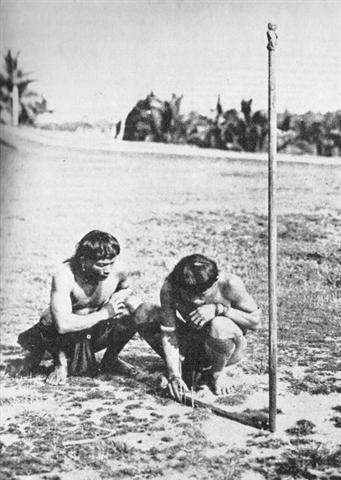
|

